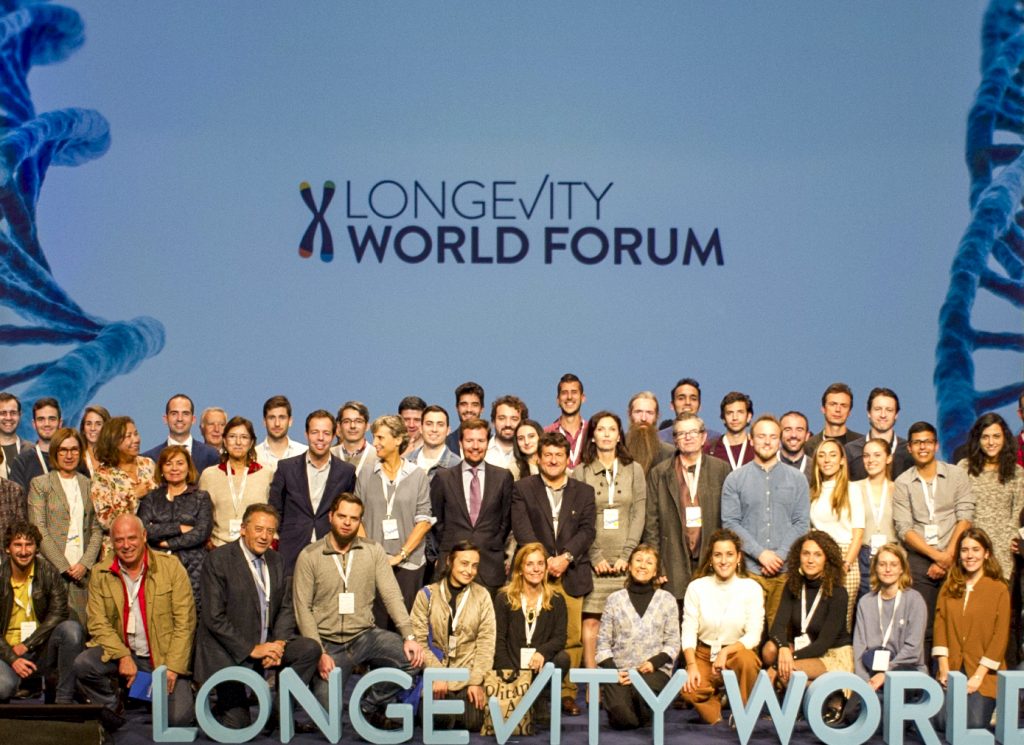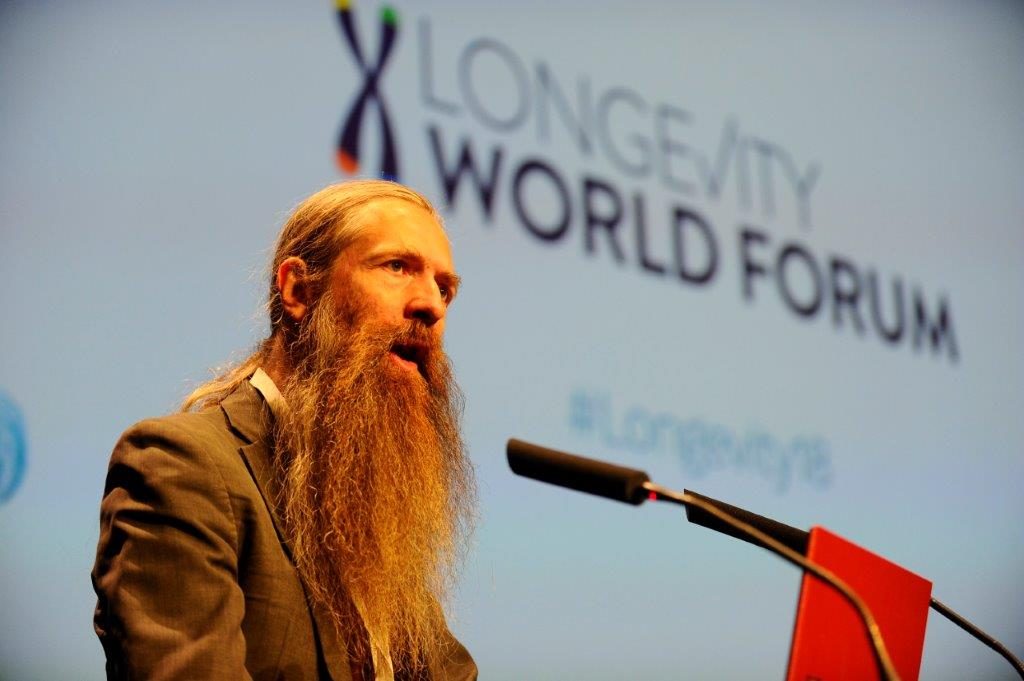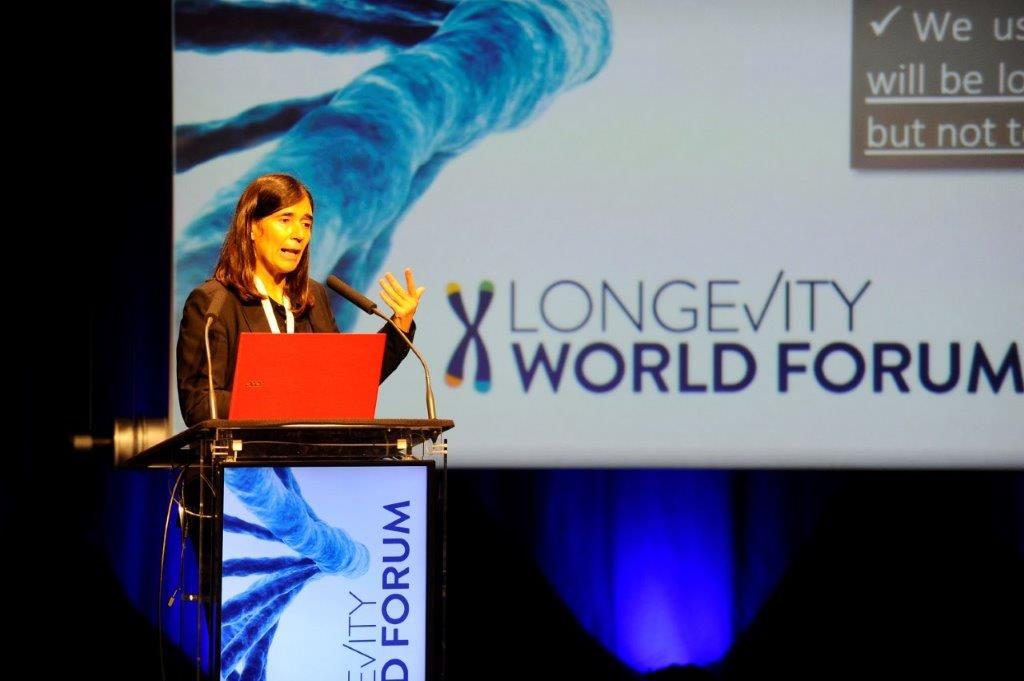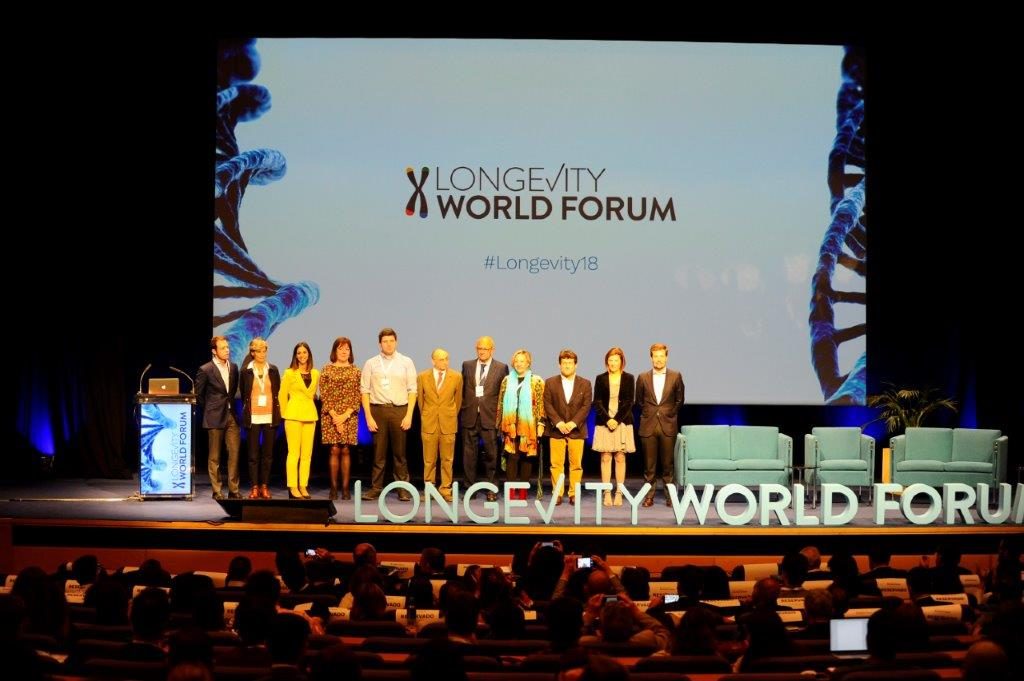La comunidad científica comparte un “tsunami de conocimiento” sobre envejecimiento saludable en el Longevity World Forum

El primer congreso de Europa sobre el aumento de la esperanza de vida y la mejora de su calidad reúne a más de 400 personas en Valencia. La organización ya ha confirmado que se celebrará una segunda edición en noviembre de 2019
El debate sobre medicina de precisión y biotecnología ponen el broche final al primer Longevity World Forum

El Longevity World Forum ha celebrado su segunda y última jornada centrando la atención en dos disciplinas que se plantean fundamentales para garantizar una mayor y mejor esperanza de vida: la medicina de precisión y la biotecnología.
La comunidad científica propone otra aproximación al envejecimiento desde el Longevity World Forum

Referentes como Ángela Nieto o María Blasco han compartido nuevas claves sobre la longevidad humana desde diferentes disciplinas en el primer congreso celebrado en Europa que centra la atención en el aumento de la esperanza de vida y la mejora de su calidad con un enfoque puramente científico.
Arranca el #Longevity18: El estudio para una mayor y mejor esperanza de vida se centra en Valencia

La primera edición del Longevity World Forum arranca en el Palacio de Congresos de la ciudad, donde referentes internacionales de la comunidad científica, como Ángela Nieto o Aubrey de Grey, se darán cita durante dos días para compartir su conocimiento en torno a la longevidad desde disciplinas como la medicina de precisión y la genómica.
